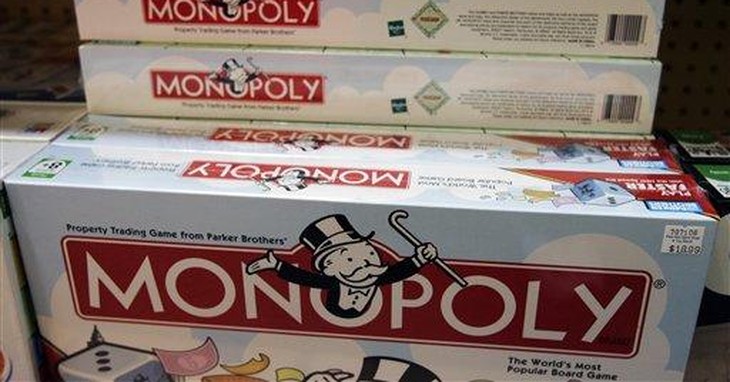Anytime you see a show on PBS, you will hear at some point how it was brought to you through a corporate grant from a major company, and/or through a contribution from some other corporation. So naturally, the channel that is also firewalled from commercial realities like ratings due to federal largesse is willing to stick a finger in the eye of those donors and take a firm swipe at our country’s capitalistic nature.
Face it, we live in an era of perpetual grievance culture. Some probably call it tiring, but I see it us reaching a point where it is encouraging. What I mean is that we are at a point where just about anything can be seen as an indicator of someone being aggrieved, offended, or otherwise dyspeptic over the most innocuous of things. Animated candy mascots have social awareness attached. Recently, hordes were outraged about a Harry Potter video game. Helicopters flying in Los Angeles have been deemed racist.
I say I am encouraged because by now, so much being elevated into a crisis is actually mundane. If everything is considered offensive then nothing truly achieves that level, and in actuality, we are approaching a reality where it all fades into being little more than white noise. It becomes like living next to the airport; at some point, you stop hearing the airplanes.
Adding to the ignored pleas now is the Public Broadcast Service. In their series American Experience, they look into the dark and nefarious origins behind our country’s most enduring board game – Monopoly. As our allies over at NewsBusters stated: “Not even widely beloved board games are immune from the left’s ruthless politicization of daily life.” You immediately get the sense of where this is going from the episode title – “Ruthless: Monopoly’s Secret History.”
It does not take long at all to see this will go off the rails as a slanted piece of “journalism.” A series of commenters opens this episode, reflecting on their personal history with the game, and one of them makes a rather insipid and rather insulated remark.
“There’s a dark side too. It’s not all rainbows and unicorns – it’s a cutthroat game. I only win, when you lose!”
And it spirals from there. We also hear from Bryant Simon, a history professor who in the past declared that the game Monopoly reflects American racism. Yes, seriously. Then we have this gem of a quote from the pronoun emblazoned Oxford University economist Kate Raworth.
“The dynamics written into the rules of this game were never intended to be the rules. It should come with a health warning, like a packet of cigarettes. ‘You are playing a twisted version of this game!’”
And we are not even two minutes into this episode by this stage.

The overriding message throughout this feature is that what we all regard as a family game, imbued with distant memories of our youth, is instead a pernicious Trojan horse of a tool to manipulate our minds and deliver unto the populace a fractured sense of economics. Everything — from the basis of gameplay being the acquisition of money to the goal of driving others out of business, and using the illegal practice of a monopoly to leverage greater control — is regarded as a poisonous teaching aid for American avarice.
Even things we would consider to be positives are regarded as negatives. One commenter states that the game teaches you to think you can reach your goals and be successful, regardless of your background, your race, or even your class in society. “And that is the problem,” they state, “and the myth that Monopoly continues to just push forward.” And you thought the American Dream being available to anyone was a good thing.
Monopoly, it need not be said for most (but apparently for these geniuses), is centered primarily around real estate which — while a component of our financial system — is not wholly reflective of our broader economy. Principles in real estate do not automatically translate to manufacturing, retail, or general corporate life. I don’t recall any aspects of buying Boardwalk and Park Place that led to the Sam Bankman-Fried crypto scamming seen with FTX.
Another scholar echoes the earlier comment about the negative aspect of vanquishing others.
“It is a zero-sum game, and so the kind of rhetoric there is that there can be only one victor. And I think that’s an interesting metaphor of the way that our capitalist system works in the United States.”
For all of these supposedly learned experts they brought on the show – none could be found who seem at all supportive or look at Monopoly positively – it appears as if none of them have ever played another board game. Since when is it a novel concept that someone comes out as the victor in a game? This is the foundational reason behind playing nearly every game on the market.
Saying that “there can only be one victor” and how that reflects our capitalist system is an abject delusion. Think of the products in our marketplace. Now consider how many companies are operating that produce that same product. We do not have only one shoe company, or one corporation making televisions. Of course, this is partly due to the small matter that in our economic system the concept of having a monopoly is actually made illegal.
It will be interesting to see if the next board game documentary from PBS is: “Murder Capitol: How ‘Clue’ Inspired Generations of America’s Violence.”



